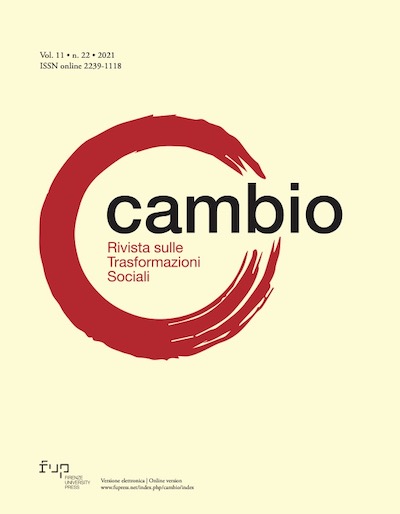Straniamento e senso comune. Pratiche di conoscenza tra automatismi percettivi, autoriflessione e processi trasformativi
Published 2022-08-03
Keywords
- estrangement,
- common-sense,
- recognition,
- sociology of knowledge,
- reflexivity
- transformation processes ...More
How to Cite
Funding data
-
Università della Calabria
Grant numbers POR Calabria FESR-FSE 2014/2020, Linea B) Azione 10.5.12 – Assegni di Ricerca
Abstract
This paper deals with the sociological concept of common-sense in a strict relationship with the literary concept of estrangement. The first part makes a transdisciplinary comparison between Alfred Schütz’s approach to «common-sense» and Viktor Šklovskij’s notion of «estrangement», noticing an impressive series of similarities in the way in which the Austrian sociologist and the Russian literary theorist dealt with perceptive automatisms and linguistic routines of everyday life. As social agents and as subjects of knowledge, we need the taken-for-granted of common-sense as a set of orientation tools in our lifeworld. On the other hand, the distancing effect of estrangement impacts on common-sense’s transformational processes as well as on cognitive purposes related to the intellectual practices of arts and sciences. The second part evaluates the consequences of this ambivalent relationship in the making of knowledge processes and scientific researches, focusing on cultural practices of linguistic recognition from a sociological perspective. The final sections include a critical reading of Carlo Ginzburg’s Making Things Strange and Norbert Elias’ Involving and Detachment, with the purpose of pointing out the methodological importance of reflexivity and its transformative potentialities for social knowledge as a potential use of estrangement.


